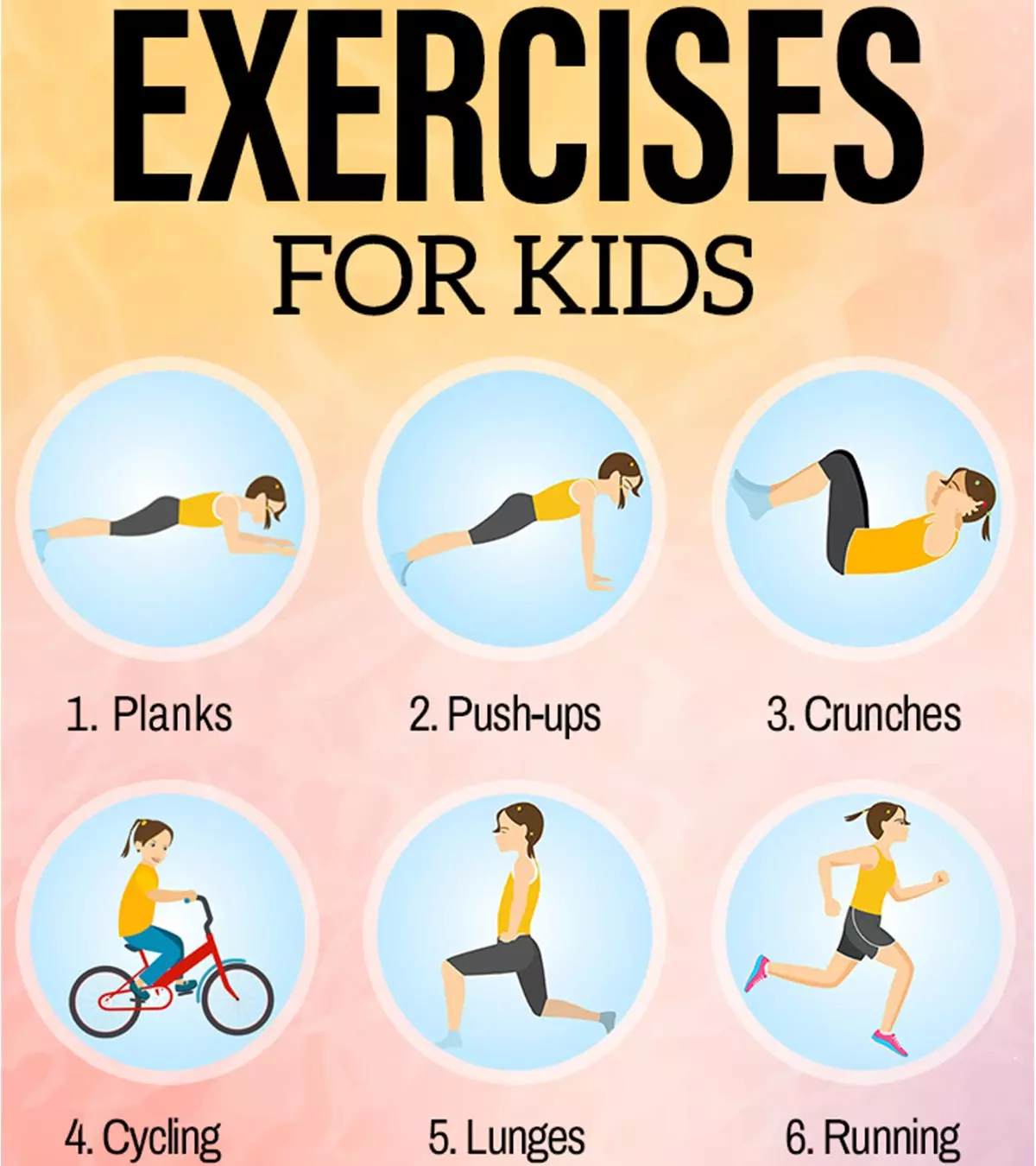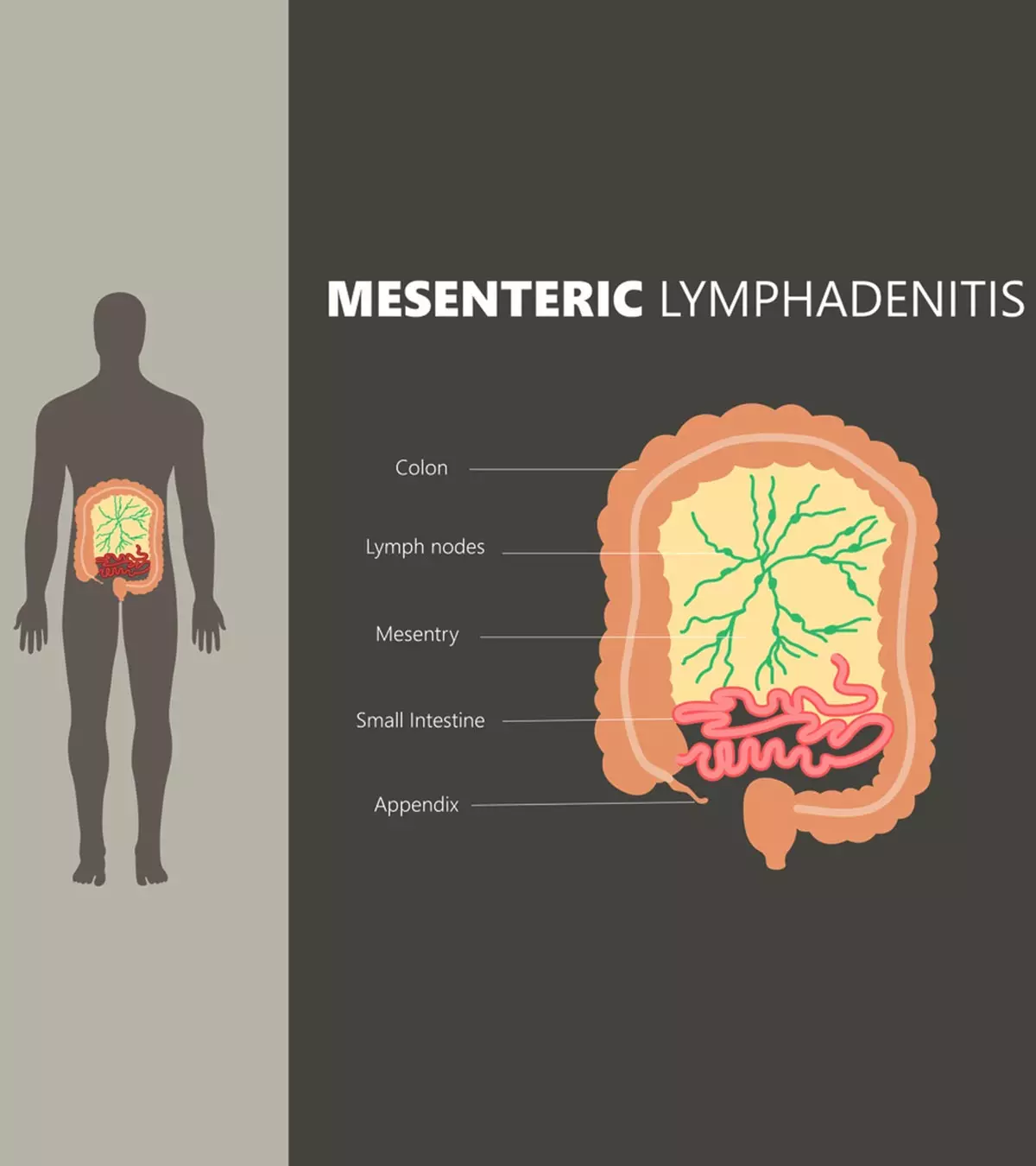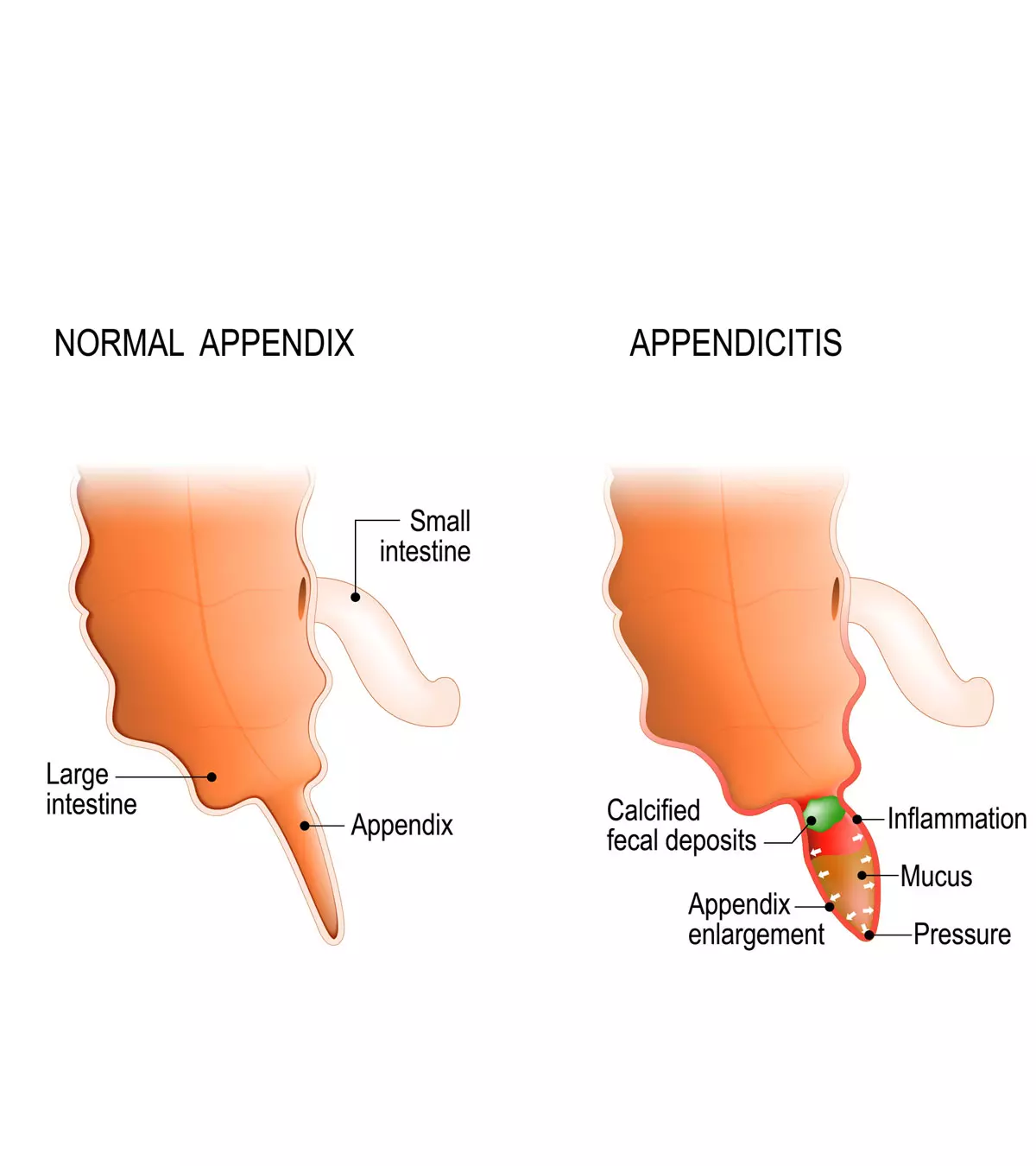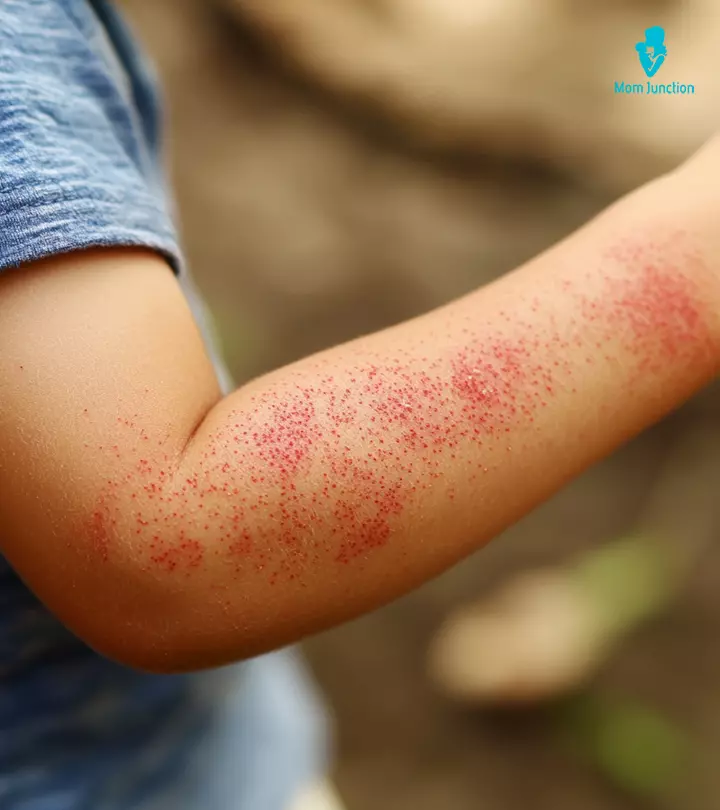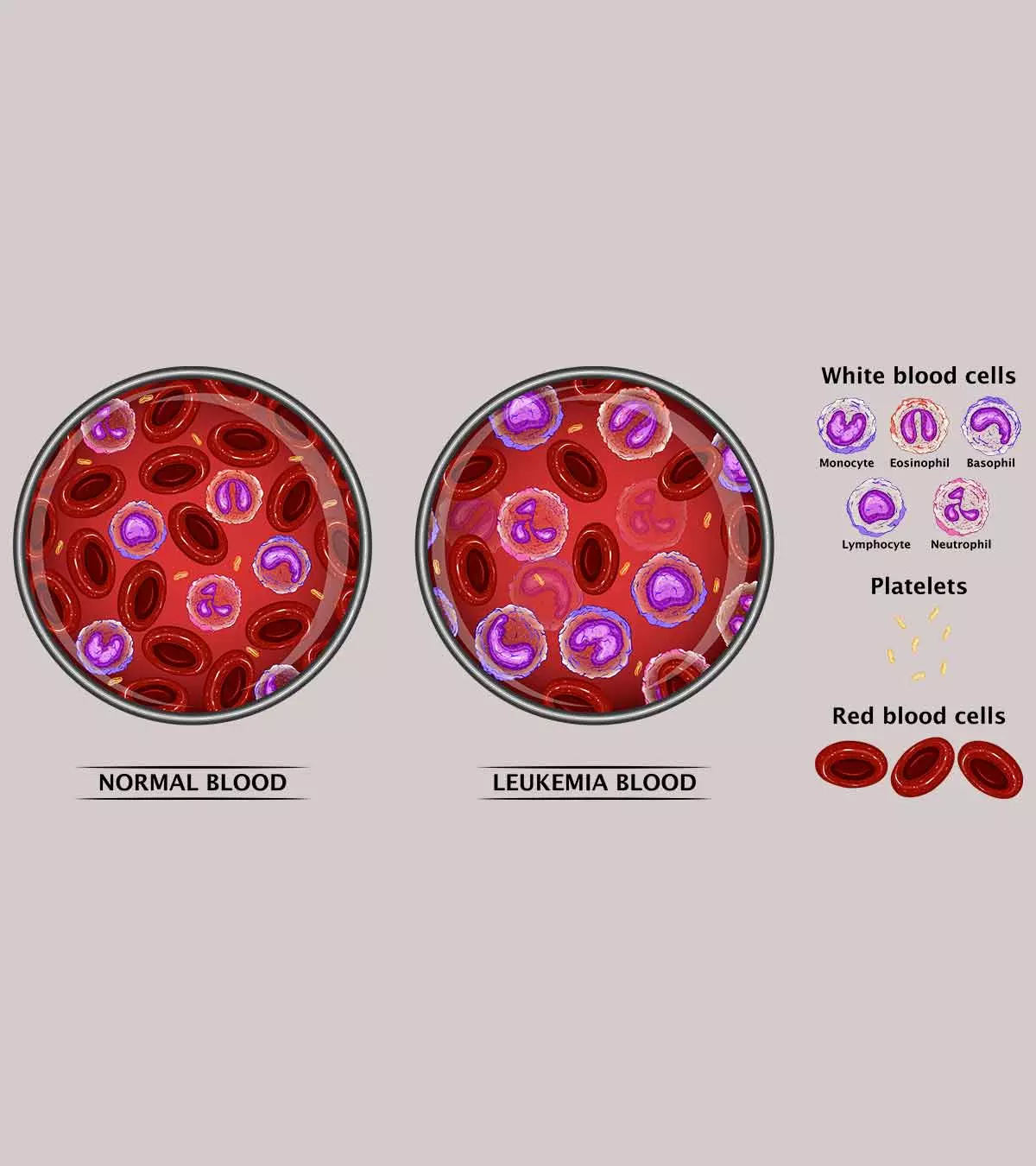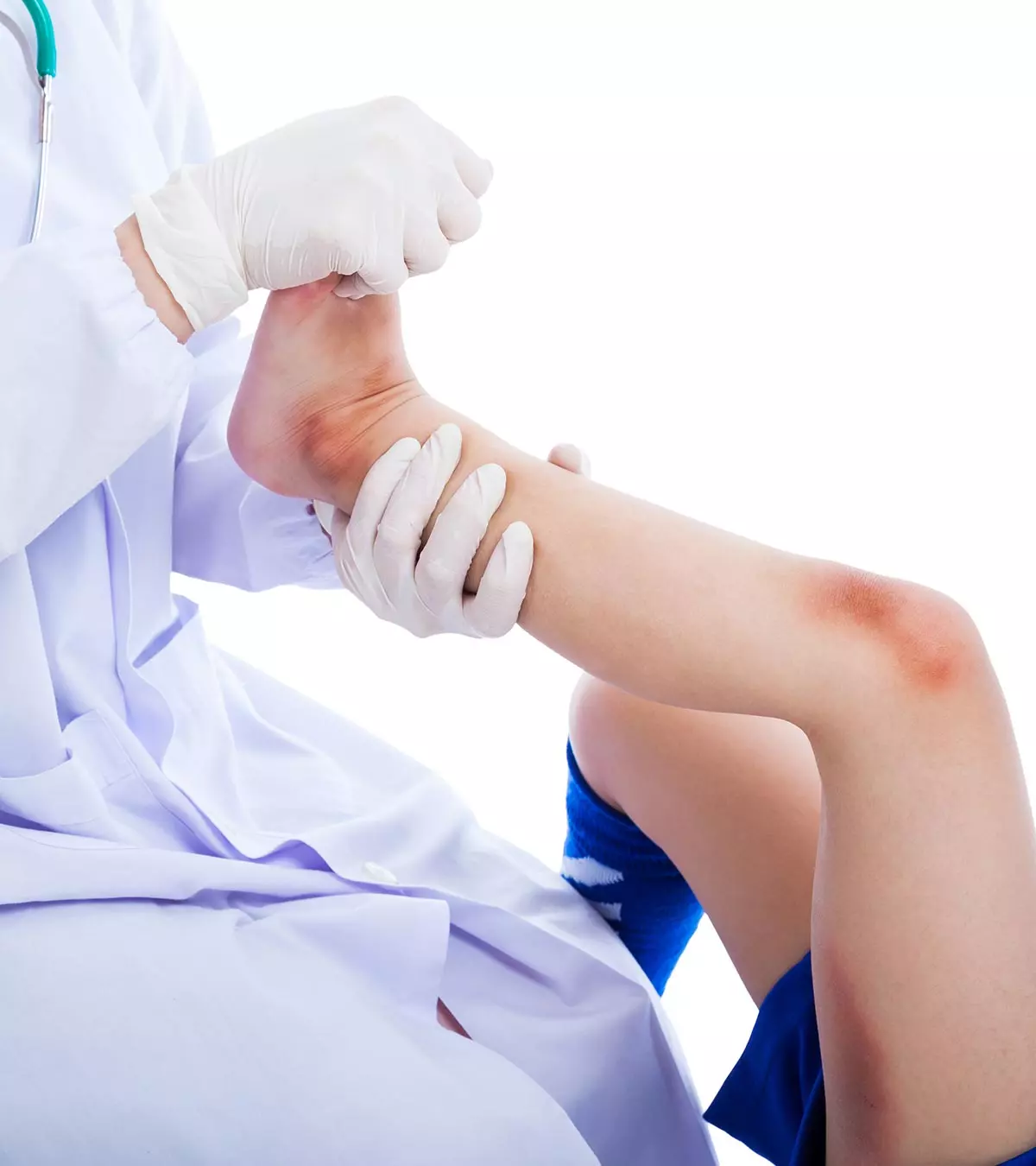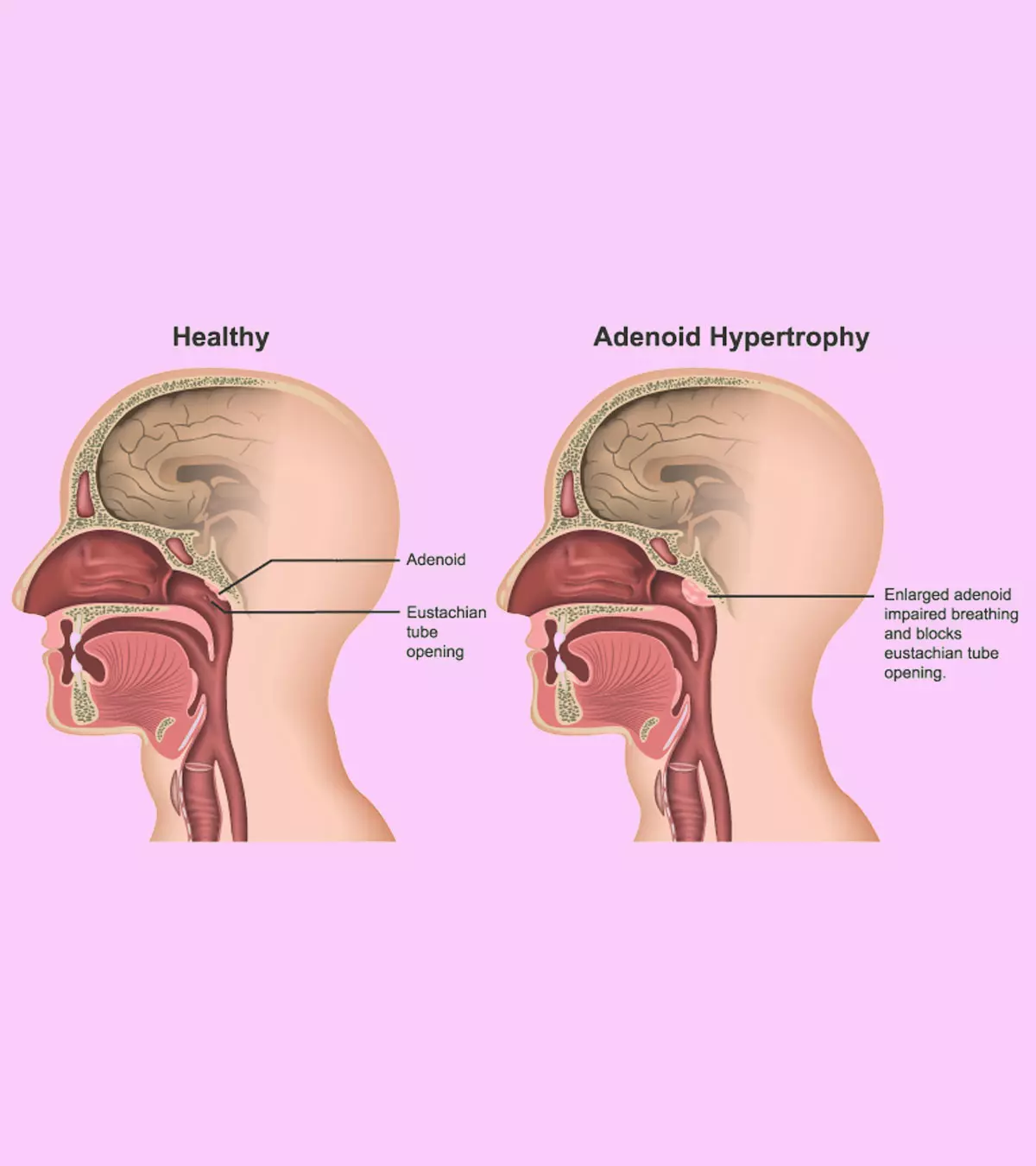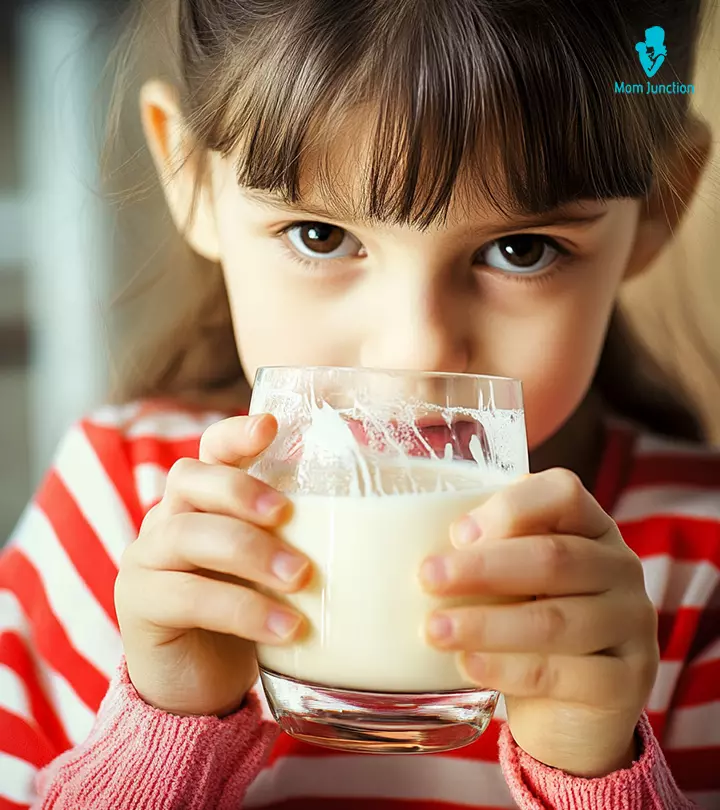
Image: Midjourney/ MomJunction Design Team
A child’s healthy, all-round development depends largely on their balanced nutrition, dietary needs, and healthy eating habits. So, besides food, pediatricians may suggest adding the nutritional supplement, PediaSure for kids. Parents are usually concerned about providing the best nutritious food for their children. In addition, they worry about developmental delays, poor growth, and other health problems usually caused by nutrient deficiencies. Therefore, they may opt for supplementing their child’s diet with commercially available products. Continue reading this post where we explain how effective PediaSure is in addressing growing children’s nutritional demands. This is not a promotional post for PediaSure or its sister brands. It is for informational purposes only and not a replacement for a doctor’s advice.

Key Pointers
- PediaSure is a nutritional supplement that pediatricians may recommend for children to aid in their overall development.
- Oral nutritional supplements (ONS) can assist in ensuring sufficient nutrient intake in children at risk of malnutrition.
- PediaSure claims to provide several benefits, such as supporting growth and development, boosting immune function, and more.
- PediaSure products are typically rich in high-quality protein, essential vitamins, and minerals, and are gluten-free.
- The recommended age range for PediaSure use is between 2 and 13 years old, and the preparation and serving method vary based on the variant.
What Is PediaSure?
PediaSure is a clinically proven nutritional supplement specifically targeted towards pediatric consumers, that is, children. The product has several variants, with the primary ones sold in the form of powder, which can be dissolved in milk or water before serving to a child. PediaSure has several key attributes, such as the presence of 27 nutrients, that benefit children. The product promotes healthy bone growth in children, assists in developing stronger and longer bones, and strengthens the immune system (1) (2). PediaSure particularly helps malnourished children who are unable to get enough nutrients from their daily diet. Serving the supplement increases nutrition intake and improves weight gain in kids (3).
Is PediaSure Good For Kids?
The American Academy of Pediatrics (AAP) advises using nutritional supplements like PediaSure only when children cannot get enough nutrients from their regular diet (4). Dr. Leah Alexander, MD, FAAP, a pediatrician from Fairview, New Jersey, says, “For children who have a medical condition that makes it difficult for them to consume enough calories to gain an appropriate amount of weight, supplemental beverages can be helpful. Pediasure is one of many available options marketed for children.”
Most PediaSure products claim to be rich in high-quality protein and essential vitamins and minerals, which are crucial for adequate child nutrition. These nutrients are necessary to support the growth and development of children. Besides, all of them are gluteniA naturally occurring protein found in cereals, such as wheat, rye, and barley -free and hence relatively easy on the gut.
When Should Pediasure Be Used?
Dietary supplements like PediaSure are commonly prescribed for children with specific nutritional needs. For example, children who are malnourished or have nutrient deficiencies that can’t be quickly fixed with food may need supplements. The Centers for Disease Control and Prevention’s findings report that 4.1% of children and adolescents aged two to 19 years have been identified as underweight (5).
A research study showed that regular use of oral nutritional supplements (ONS) could promote and sustain adequate intake of nutrients in children who have the risk of malnutrition (6).
Those with chronic illnesses, such as cystic fibrosisiA genetic disorder affecting the lungs, pancreas, and digestive system by blocking the airways and organ ducts with mucus. , may struggle to get enough calories from regular meals and can benefit from supplements to help them grow (7). Similarly, children undergoing cancer treatment, experiencing appetite loss and weight loss, or those with inflammatory bowel diseases like Crohn's diseaseiA chronic bowel condition that can affect any part of the digestive tract, causing inflammation, ulcers, and severe digestive problems. or ulcerative colitisiA chronic inflammatory disease that causes sores and inflammation leading to frequent diarrhea and abdominal pain. may need additional nutrition during flare-ups or recovery (8) (9).Thus, the product can be considered good for under-nourished and children with certain medical conditions when given under medical supervision. Consult your doctor for guidance.
 Did you know?
Did you know?At What Age Can Kids Drink PediaSure?
Depending on the variant, the manufacturer recommends PediaSure for children from two years to 13 years (11). If your child is younger than two years, then the brand advises a pediatric consultation before use. The use of PediaSure for babies up to one year of age is not recommended (12). Hence, parents should always verify PediaSure powder’s age limit by referring to the product’s description to ensure that it suits their child’s age and nutritional requirements.
How To Give PediaSure To Your Child?
The method of preparing and serving PediaSure depends on its variant. For instance,
- PediaSure Grow and Gain Shakes are ready-to-drink shakes that do not require preparation.
- It is a powder that needs to be mixed in water to prepare the drink. Follow the instructions on the label for accurate measurements to ensure your child gets the right amount of nutrition.
- The company also suggests parents try recipes that can have Grow & Gain shakes or powder mix as an ingredient. However, do check the other ingredients in a recipe to ensure your child’s safety.
- PediaSure vanilla can be incorporated into salad dressings, pancake batter, pita fillings, and other healthy breakfast and snack recipes.
- Other flavors of PediaSure, such as chocolate, strawberry, or banana, can also be added to oatmeal, breakfast cereals, smoothies, or plain unsweetened yogurt to enrich their taste.
Blogger, a parent of three and a preschool teacher, shares her experience of how her kids, who previously disliked the taste of PediaSure, ended up loving it when she made ice cream with it. She shares, “They ate EVERY BITE. They never once mentioned that their new ice cream treat tasted yucky like they had told me just an hour before at the dinner table. I used one can of PediaSure in place of the milk. One can of PediaSure is a little bit more than a cup. All the recipes I saw called for a cup of milk…and the little bit extra didn’t seem to bother the recipe at all (i).”
To make the ice cream: Mix one can of PediaSure (chocolate or strawberry) with 2 tablespoons of sugar and 1/2 teaspoon of vanilla in a quart-size ziplock bag. Seal it and shake well. Place this bag inside a gallon-size ziplock bag filled with 2–3 cups of ice and 1/4 cup of salt (rock or table salt works). Seal the gallon bag and shake vigorously for 5 minutes. Once the ice cream hardens, let it sit in the ice for another 5 minutes before serving.
 Quick fact
Quick fact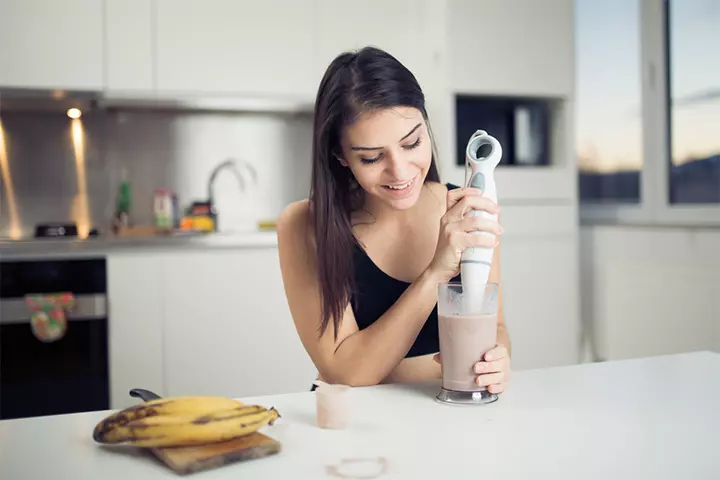
What Is The Nutritional Composition of PediaSure?
There are several variants of PediaSure available in the market, targeting children of different age groups and with varying recommended portions. Some important micronutrients, macronutrients, and minerals are found in balanced composition in every product type. These include protein, fat, carbohydrate, vitamins A, C, B1, B2, B6, B12, D2, E, and K, niacin, pantothenic acid, biotin, choline, and folic acid, and minerals including calcium, iron, iodine, magnesium, phosphorous, zinc, selenium and manganese (11). The specific quantities of these nutrients vary depending on the PediaSure product type.
What Are The Various Products Of PediaSure?
PediaSure nutritional supplements are available in a range of variants depending on the nutritional requirement of the child and their age. Here are the three common PediaSure products available over the counter.
- PediaSure Grow and Gain is a product formulated for children who are lacking appropriate growth (11). It comes in variants, such as PediaSure Grow and Gain, PediaSure Grow and Gain with Fiber, PediaSure Grow and Gain Organic, and PediaSure Grow and Gain Shake Mix (12).
- PediaSure Side Kicks is designed to fill the nutritional gaps in a child’s diet and helps kids catch up on their growth (13). According to the maker, this product provides extra protein and fewer calories when compared to PediaSure Grow and Gain. PediaSure Side Kicks is suitable for fussy eaters.
- PediaSure 1.5 Cal has high caloric density to meet the high energy demands of children at risk of malnutrition (14). It has one variant, PediaSure 1.5 Cal with Fiber.
Most PediaSure products are available in multiple flavors. There are some other product types that are specially designed for tube feeding, like PediaSure Enteral Formula 1.0 Cal.
Is PediaSure Helpful For Picky Eaters?
PediaSure’s balanced nutritional composition could help picky-eating children get their recommended daily value of nutrients. Young children often display picky eating, which is characterized by a refusal to consume certain foods or a strong preference for one type of food or food items (10) (15). These preferences could cause the child to miss out on food items that can be excellent sources of certain vital nutrients, affecting the child’s healthy development.
A study indicated that the regular use of oral nutritional supplements (ONS) could maintain the weight of picky eaters and improve their nutritional status (3). According to another study, ONS improved the nutritional status of nutritionally at-risk picky eaters with upper respiratory tract infections (URTIs) and provided enhanced protection against relapse of URTI (11).
How Much PediaSure Can Children Drink In A Day?
According to PediaSure, the recommended servings depend on the child’s age. In children aged one to eight years, it is recommended to give up to two servings each day, while children aged nine to ten years can consume about three servings (16).
However, it is still recommended that you consult a pediatrician to determine the amount of supplement suitable for your child. It is even more important to consult a pediatrician if the child is already eating adequate food and consuming other beverages and supplements.
Claimed Health Benefits of PediaSure For Children
The following are purported benefits of consuming PediaSure (16 17). However, there is currently no independent scientific research available to substantiate these claims.
- Supports growth and development: PediaSure contains high-quality protein, calcium, and vitamin-D3. The regular consumption of this drink with well-balanced, healthy foods for kids could help one gain weight and height within 24 weeks. PediaSure claims that this benefit is clinically proven in children between the ages of three-four years. Its consumption may also help underweight children in gaining weight.

- Strengthens the immune system: PediaSure is said to contain antioxidant compounds such as vitamins C and E and selenium. These nutrients can play a vital role in strengthening the immune system.
Apart from the above nutritional benefits, some other general benefits of PediaSure are:
- Gluten-free: Some healthy drinks for kids contain gluten that is not suitable for children with gluten sensitivity, intolerance, or allergy. PediaSure might be a choice since all its variants are gluten-free and good for digestive health as well.
- Suitable for lactose intolerant children: Products are labeled as “suitable for lactose intolerance” when they contain lactose at a level that does not seem to affect anyone with lactose intolerance. PediaSure claims to contain less than four grams of lactose per liter as fed, or less than 0.5 grams of lactose per serving as fed. However, it is a milk-based formula and needs to be avoided in children with cow milk allergy and galactosemiaiA disorder that impacts the body’s ability to process a simple sugar, galactose .
- Improves bone density: Vitamin D and calcium are essential for healthy skeletal and bone growth. In particular, vitamin D plays a crucial role in achieving healthy bone density (18). All the variants of PediaSure contain a good amount of vitamin D2 (ergocalciferol) and calcium (10). Thus, regular consumption of PediaSure can help improve bone density in children.
- Build muscles: Protein is an essential nutrient that promotes muscle growth and builds new muscles (19). PediaSure includes about 6.4g of protein in every 45.5g serving (10).

The product also claims to be free of artificial growth hormones and is Kosher and Halal-certified.
A study assessed the effect of PediaSure intake in chronically disabled children for 12 weeks. The report states, “ This study demonstrates that PediaSure is both safe and efficacious in the maintenance of the nutritional status and the promotion of growth in chronically disabled children who require specialized nutritional support (20).”
Safety Considerations While Using PediaSure
Like any other supplement, it is important to follow the dosage and quantity of PediaSure, as recommended by the pediatrician. Also, it should be noted that consumption of Pediasure may lead to certain side effects.
Do Nutritional Supplements For Children Have Side Effects?
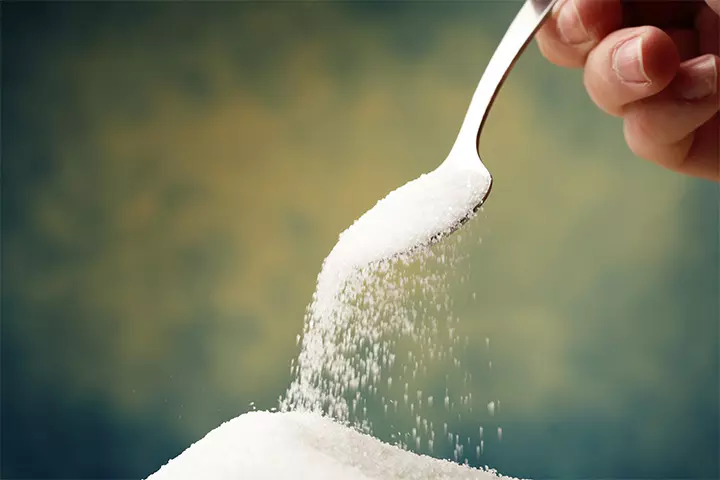
There might be some side effects of consuming nutritional supplements, such as PediaSure.
- Sugar content: Supplements contain total natural sugar in the form of plain sugar, corn syrup, and corn maltodextriniA white powder made from vegetable starch, used as a food additive or flavor enhancer that all have a high glycemic glycemic indexiA rating system that shows how a specific food affects the blood sugar levels (GI). Thus, in the case of a healthy child, nutritional supplements might contribute to weight gain but at the same time it could be unsuitable for those who are already overweight or obese, as it may exacerbate further weight gain (21) (22). Additionally, it may contribute to dental caries (23). The sugar content in PediaSure varies by type. For example, PediaSure Advance contains 30.3 grams of sugar per 100 grams, which also pose similar risks (24). The consistent intake of added sugar by children results in significant spikes in blood sugar levels over time, rendering it unsuitable for kids with diabetes.
Dr. Alexander adds, “From a nutritional perspective, the amount of sugar is an issue. The recommended daily sugar intake after age two is 25g per day. Some formulations of Pediasure have nearly that much sugar in just one serving.”
- Gastrointestinal issues: Components, such as fiber and soy protein isolate, when consumed in high amounts, could lead to gastrointestinal issues such as constipation, bloating, and nausea. It might probably happen in children who consume fiber from several different food sources (25).
- Might replace normal food: A child may feel full after consuming the beverage and may reject their next meal. Also, in the long term, there might be a risk of the child preferring high-sugar foods. The probability of this incidence depends on several factors, including excess consumption without consulting a pediatrician.
 Expert says
Expert says
Frequently Asked Questions
1. How to mix PediaSure Grow & Gain for kids?
To prepare one glass of PediaSure Grow & Gain, mix five scoops of powder into 3/4th cup of water (27). Stir well to avoid any lumps. Give the drink as prescribed by a pediatrician.
2. Is PediaSure a meal replacement?
No, PediaSure is not a meal replacement. It is a dietary supplement to ensure that children reach optimal growth without nutritional deficiencies. It is recommended to consult a pediatrician before administering Pediasure to children. Dr. Alexander suggests, “In particular situations, supplemental beverages may be used as meal replacements. For example, Pediasure is used as a meal replacement for some of my patients who are fed via a gastrostomy tube. These children cannot eat enough food by mouth to grow and gain weight because of their medical condition. For healthy children, however, Pediasure is not a meal replacement.”
3. Is PediaSure good for brain development?
PediaSure claims to contain several vitamins and minerals that boost brain development in children. The brand also claims to contain essential fatty acids that support optimal brain development.
4. How often can a child drink PediaSure?
PediaSure claims that it can be a part of a regular diet, consumed as a nutritional supplement, or an in-between meal snack. However, it is recommended to consult a pediatrician to determine the dosage and interval (16).
5. Are there any allergens in PediaSure?
Yes, PediaSure contains corn, soy ingredients, and dairy proteins, including casein and whey, which can be allergens for children. Therefore, it is advised to read the label carefully for any potential allergens before giving the product to your child (16) (27).
6. Is PediaSure suitable for children with medical conditions?
Pediasure is mostly safe for children. However, if your child has an existing medical condition, it is best to consult a pediatrician before giving this supplement to your child.
7. How should PediaSure be stored?
PediaSure is available as ready-to-use drinks or in powdered form. In the case of ready-to-use drinks, the product needs to be stored in a refrigerator, and if opened, it should be consumed within 24 hours (28). In the case of powdered variants, if the pack is opened, it should be covered with a cap and stored in a cool and dry place. Use it within three weeks of opening (12).
8. Is PediaSure suitable for vegetarians?
Yes. PediaSure contains vegetable oils and other plant-based ingredients. Therefore, it is suitable for vegetarians (27).
9. Does PediaSure contain artificial flavors or colors?
Yes. Some variants of PediaSure contain artificial color and flavoring agents (27). However, a new type of PediaSure, PediaSure Grow & Gain Organic, claims to be free of artificial colors, flavors, or preservatives (29).
10. How does PediaSure compare with natural food sources?
PediaSure can be helpful for kids who are underweight or struggling to get enough nutrition from their regular meals, but it doesn’t offer all the benefits that natural foods do. Whole foods are packed with important fiber, a variety of nutrients, and natural compounds that support healthy growth, which supplements just can’t provide. Plus, getting kids used to eating a balanced diet of whole foods helps them develop healthy eating habits and preferences for the long run. Hence, PediaSure should be used as a temporary supplement when a healthcare provider recommends it, not as a substitute for regular meals. Real food is still the best way to nourish a growing child.
Doctors and parents use PediaSure for kids to ensure they get sufficient nutrients and gain calories as required. If your child follows a balanced diet, PediaSure may not be recommended. Additionally, it’s advisable to use the product only with the doctor’s consent, especially for children under two. Also, refrain from giving it more than the recommended number of times per day since it may replace meals. If you notice any gastrointestinal troubles in your child after consuming PediaSure, consult your child’s healthcare provider.
Infographic: How Does PediaSure Affect A Child’s Health?
PediaSure is a nutritional drink typically recommended by healthcare providers for children who don’t get enough nutrients from their diet alone. So, scroll through the infographic below to learn about potential benefits and health risks associated with PediaSure in children.
Some thing wrong with infographic shortcode. please verify shortcode syntax
Illustration: PediaSure For Kids - Benefits And Side Effects
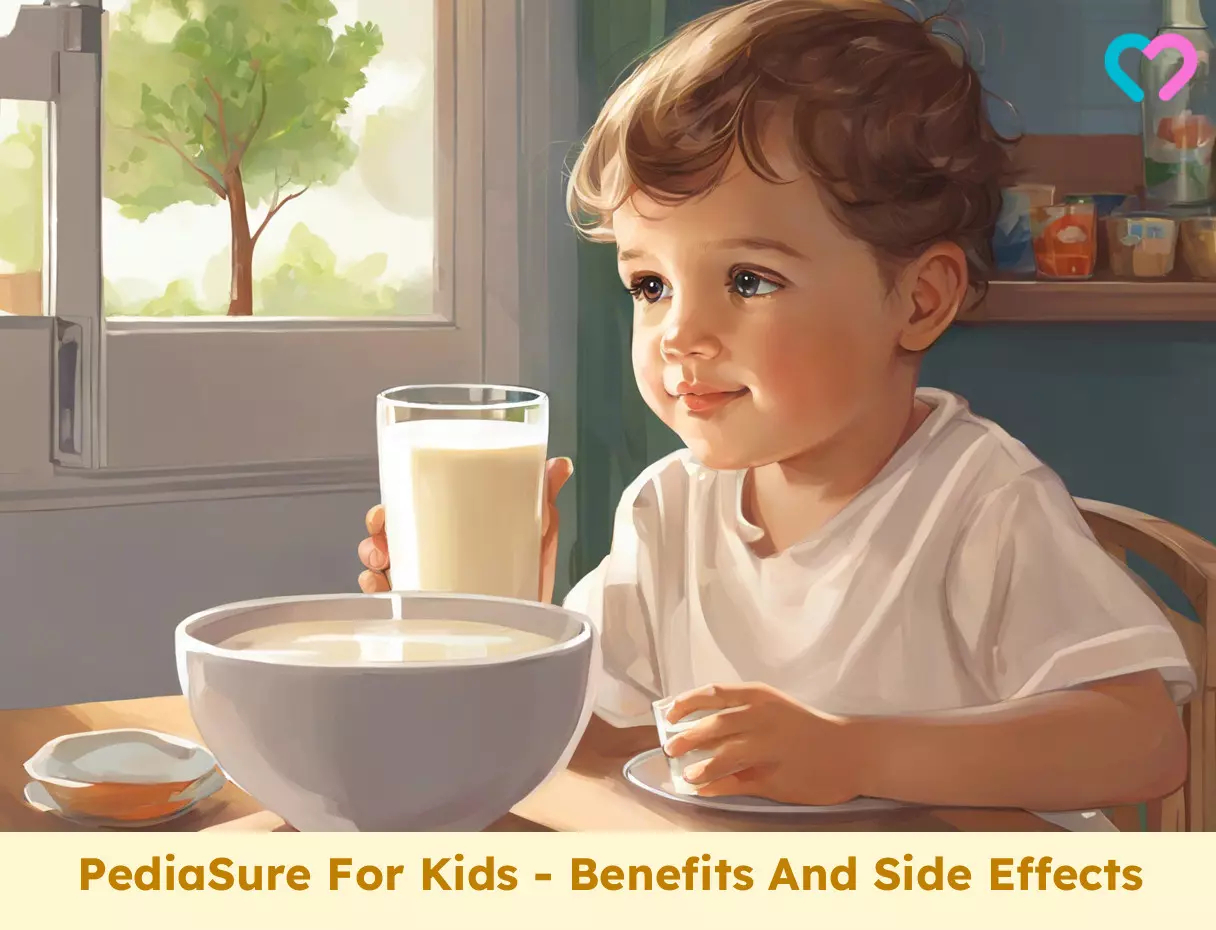
Image: Stable Diffusion/MomJunction Design Team
Personal Experience: Source
MomJunction articles include first-hand experiences to provide you with better insights through real-life narratives. Here are the sources of personal accounts referenced in this article.
i. Pediasure Ice Cream.https://pigtailsandpearlsblog.wordpress.com/
References
- PediaSure.
https://www.cancer.gov/publications/dictionaries/cancer-terms/def/pediasure - Make PediaSure a nutrition partner in your child’s growth journey.
https://www.family.abbott/in-en/pediasure/home.html - PediaSure Compendium Of Abbott Studies.
https://static.abbottnutrition.com/cms-prod/growthleadershipnetwork.com/img/pediasure-compendium.pdf - Not So Sure About Pediasure: Assessing the Relationship of BMI and the Incorporation of Nutritional Supplements in Ideal Meal Plans.
https://publications.aap.org/pediatrics/article-abstract/144/2_MeetingAbstract/208/3364/Not-So-Sure-About-Pediasure-Assessing-the?redirectedFrom=fulltext - Prevalence of Underweight Among Children and Adolescents Aged 2–19 Years: United States, 1963–1965 Through 2017–2018
https://www.cdc.gov/nchs/data/hestat/underweight-child-17-18/underweight-child.htm - Dieu T. T. Huynh et al.; (2016); Impact of long-term use of oral nutritional supplement on nutritional adequacy, dietary diversity, food intake and growth of Filipino preschool children.
https://www.ncbi.nlm.nih.gov/pmc/articles/PMC4891560/ - Nutritional Basics.
https://www.cff.org/managing-cf/nutritional-basics - Laura Pedretti et.al; (2025); Role of Nutrition in Pediatric Patients with Cancer.
https://pmc.ncbi.nlm.nih.gov/articles/PMC9920596/ - R E Kleinman et.al; (1989); Nutritional support for pediatric patients with inflammatory bowel disease.
https://pubmed.ncbi.nlm.nih.gov/2499674/ - Apurba K. Ghosh et al.; (2018); Effect of oral nutritional supplementation on growth and recurrent upper respiratory tract infections in picky eating children at nutritional risk: a randomized, controlled trial.
https://www.ncbi.nlm.nih.gov/pmc/articles/PMC6023057/ - Product Information: PediaSure Grow & Gain Shake.
https://static.abbottnutrition.com/cms-prod/abbottnutrition-2016.com/img/PediaSure-Grow-%26-Gain-Shake.pdf - You’ve got questions? We’ve got answers.
https://www.pediasure.com/nutrition-questions-answers - Product Information: PediaSure SideKicks® Shake.
https://static.abbottnutrition.com/cms-prod/abbottnutrition-2016.com/img/PediaSure-SideKicks-Shake.pdf - PediaSure® 1.5 CAL.
https://www.abbottnutrition.com/our-products/pediasure-1_5-cal - Why Choose PediaSure?.
https://www.family.abbott/in-en/pediasure/science-of-pediasure.html - Frequently asked questions.
https://www.family.abbott/au-en/pediasure/faq.html - Complete nutrition for your child’s growth.
https://www.pediasure.com/child-development-nutrition/powerful-nutrition-kids - Pegah Karimian, et al.; (2025); Effects of vitamin D on bone density in healthy children: A systematic review.
https://www.ncbi.nlm.nih.gov/pmc/articles/PMC9051716/ - The Importance of Proteins: Muscle Mass.
https://www.cff.org/managing-cf/importance-proteins-muscle-mass - Mary Ramstack and Robert Listernick; (1991); Safety and Efficacy of a New Pediatric Enteral Product in the Young Child.
https://aspenjournals.onlinelibrary.wiley.com/doi/abs/10.1177/014860719101500189 - Michelle Lampl et al.; (2016); Promoting Healthy Growth or Feeding Obesity? The Need for Evidence-Based Oversight of Infant Nutritional Supplement Claims.
https://www.ncbi.nlm.nih.gov/pmc/articles/PMC5198126/ - Shi-Sheng Zhou and Yiming Zhou; (2014); Excess vitamin intake: An unrecognized risk factor for obesity.
https://pmc.ncbi.nlm.nih.gov/articles/PMC3932423/ - Niamh Coffey et.al; (2025); Oral Nutritional Supplements: Sugar Content and Potential Dental Implications.
https://pubmed.ncbi.nlm.nih.gov/34569084/ - Pediasure Advance.
https://www.proconnect.abbott/in/en/home/pediatric/products/Pediasure-Advance.html - Tolia V et al.; (1997); Gastrointestinal tolerance of a pediatric fiber formula in developmentally disabled children.
https://pubmed.ncbi.nlm.nih.gov/9176828/ - Concerns That Your Child is Not Gaining Enough Weight.
https://penfieldchildren.org/kohls-building-blocks/health-and-wellness/concerns-that-your-child-is-not-gaining-enough-weight/ - PediaSure® Grow & Gain Shake Mix.
https://www.pediasure.com/nutrition-drinks-for-kids/grow-gain-nutrition-powder - FAQ Ask the experts!
https://pediasure.ca/en/questions - Certified organic. Simply delicious nutrition.
https://www.pediasure.com/nutrition-drinks-for-kids/grow-gain-nutrition-shakes-organic?bvstate=pg:3/ct:r
Community Experiences
Join the conversation and become a part of our nurturing community! Share your stories, experiences, and insights to connect with fellow parents.
Read full bio of Dr. Umera Zakiahmed Saiyed
- Dr. Leah Alexander is a board-certified pediatrician who provides medical care in an outpatient setting in Fair Lawn, New Jersey. She has also been working as a pediatrician with Medical Doctors Associates at Pediatricare Associates, New Jersey, since 2005. Dr. Alexander holds a bachelor's degree in Health Science from Kalamazoo College and a Doctor of Medicine degree from Michigan State University.
 Dr. Leah Alexander is a board-certified pediatrician who provides medical care in an outpatient setting in Fair Lawn, New Jersey. She has also been working as a pediatrician with Medical Doctors Associates at Pediatricare Associates, New Jersey, since 2005. Dr. Alexander holds a bachelor's degree in Health Science from Kalamazoo College and a Doctor of Medicine degree from Michigan State University.
Dr. Leah Alexander is a board-certified pediatrician who provides medical care in an outpatient setting in Fair Lawn, New Jersey. She has also been working as a pediatrician with Medical Doctors Associates at Pediatricare Associates, New Jersey, since 2005. Dr. Alexander holds a bachelor's degree in Health Science from Kalamazoo College and a Doctor of Medicine degree from Michigan State University.
Read full bio of Swati Patwal
Read full bio of Rohit Garoo
Read full bio of Dr. Joyani Das






